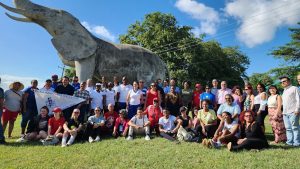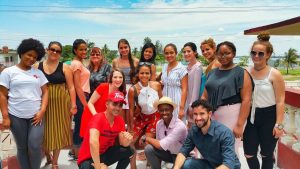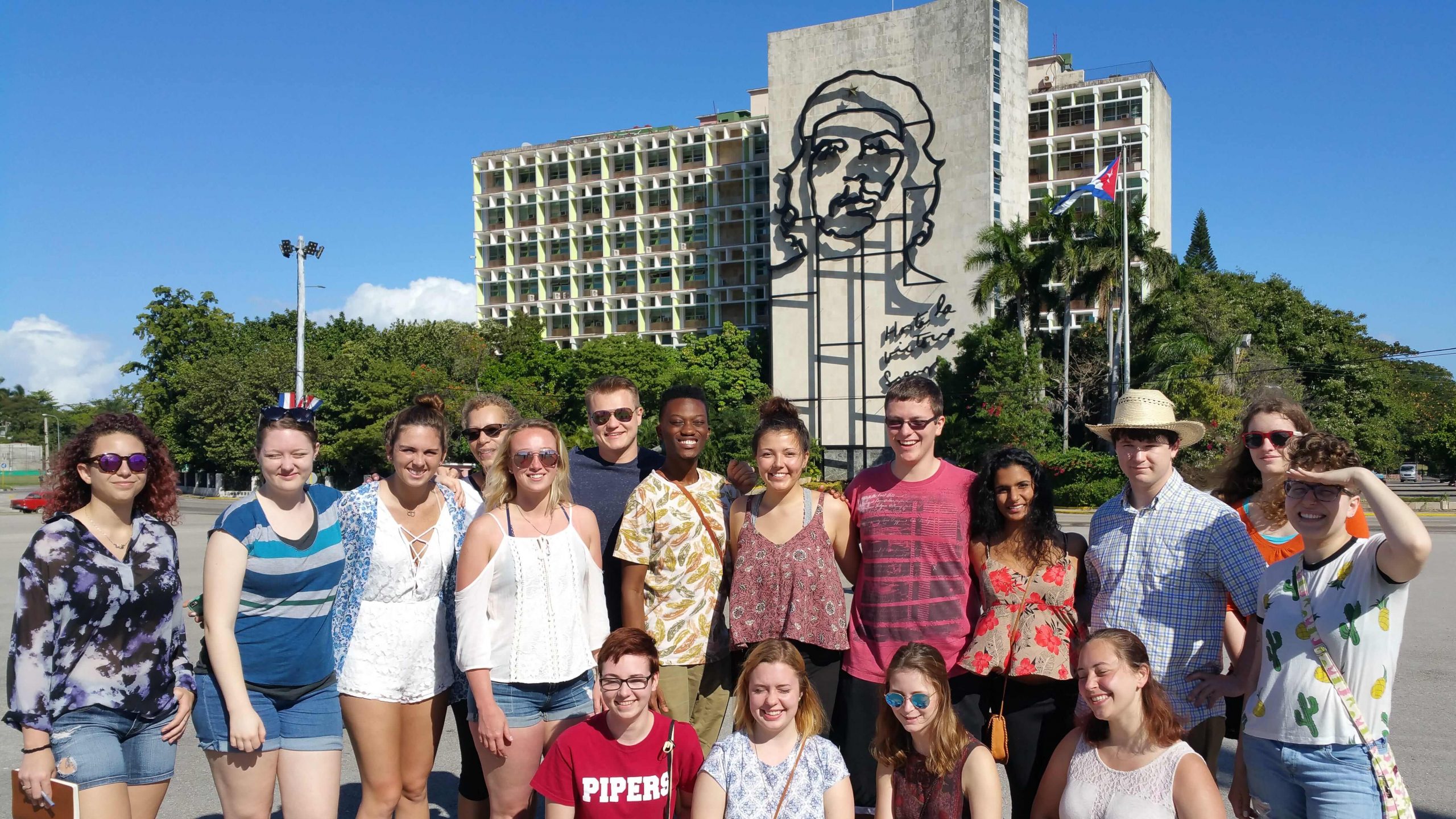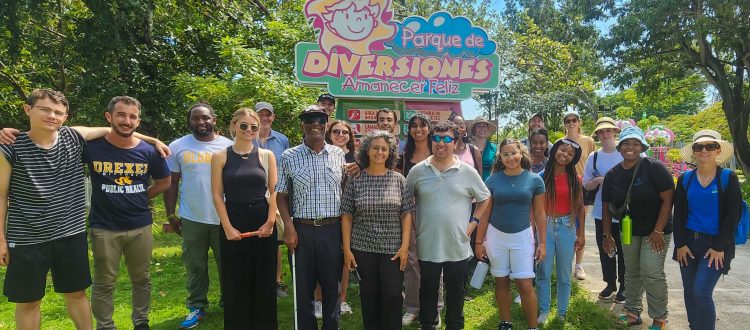Everyone should study abroad at least once
Jeff Mathwig, MPH '25 Dornsife School of Public Health, Drexel University
“This article was first published in The Triangle. https://www.thetriangle.org/opinion/everyone-should-study-abroad-at-least-once/“
Drexel University offers several short-term study abroad courses called intensive courses abroad. These ICAs are typically taken during breaks between quarters and are followed by traditional classroom assignments like papers during the usual quarter time frame. One of the more unique opportunities offered by Drexel is the chance to go to Cuba. The United States has had turbulent relations with the island nation since the early 1960s, and travel to the country is still tightly controlled. Several students shared their impressions of the course with me in a series of discussions regarding Cuba and studying abroad.
 The course began with light reading and writing assignments in the summer prior to departure to prepare students for their eventual arrival in Cuba. Other logistical tasks were also completed including an application for a visa and the submission of any additional travel paperwork. Students met one time via Zoom before they arrived to talk about what the course would be like. Upon arrival, students were immediately put on a bus and began their journey to Cienfuegos, Cuba — the city where the majority of —coursework would be done during the 10 day trip.
The course began with light reading and writing assignments in the summer prior to departure to prepare students for their eventual arrival in Cuba. Other logistical tasks were also completed including an application for a visa and the submission of any additional travel paperwork. Students met one time via Zoom before they arrived to talk about what the course would be like. Upon arrival, students were immediately put on a bus and began their journey to Cienfuegos, Cuba — the city where the majority of —coursework would be done during the 10 day trip.
The course was led by four instructors, three of whom were Drexel professors. The fourth was Dairo Enrique Moreno, the founder of CIVITAS and our main guide throughout Cuba. Dairo was joined by two translators, Yadira Herrera Hernandez and Dayana Morffi Quintero. Several other memorable people made appearances throughout the trip, including students from Cuba’s University of Cienfuegos and members of the local community who we would see on more than one occasion. Unlike traditional classroom experiences where students may sit next to the same person everyday and never exchange a word, the human element of the course brought students together in a novel way that helped foster feelings of community. Some of the best moments of the trip were as simple as running into familiar people on the street.
Stephanie Morel, an undergraduate health sciences student, commented on these experiences by saying, “Spending time with the Cuban people and hearing from professors, medical professionals and locals taught me that it is a beautiful, persevering and valuable country that deserves more attention and respect from the rest of the world.”
 According to the students who participated, the course was informative but also challenging. When asked what challenges she faced, Morel mentioned her youth. The course is open to both undergraduate and graduate students, so the age range can be quite large from youngest to oldest. Morel, who was the youngest in the group, had to shift into a more mature and professional mindset. She mentioned how this was hard for her at first, but it helped her to experience a growing and reflective trip that she states she would not trade for anything.
According to the students who participated, the course was informative but also challenging. When asked what challenges she faced, Morel mentioned her youth. The course is open to both undergraduate and graduate students, so the age range can be quite large from youngest to oldest. Morel, who was the youngest in the group, had to shift into a more mature and professional mindset. She mentioned how this was hard for her at first, but it helped her to experience a growing and reflective trip that she states she would not trade for anything.
The trade embargo was the most commonly discussed topic. It impacts every aspect of life in Cuba. Lynelle Martin, an undergraduate student studying biomedical engineering, commented on the trade embargo stating, “I think it’s wrong because of the impact it has on food, clean water, medicine and other economic needs of the Cuban population. Even a large majority of the United Nations is for a resolution of the embargo, but the United States constantly vetoes it.”
The trade embargo was placed on Cuba by the Kennedy administration in the early 1960s as a way to punish Cuba for its ties to the USSR. Relations have never been great since then with each new American president supporting the embargo in some form.
Riya Kumar, an undergraduate biology major, commented on the embargo stating, “Maybe historically it was necessary, but to have it in place all the way to now is not needed and hindering the progress of a country with such potential. It’s easy to support the embargo when just thinking about Cuba as a whole country because it’s so depersonalizing. But when I saw the individual people it affected and how they had to live their lives a certain way just because of this embargo, it opened my eyes so much more.”
Students formed into groups for their final assignment which was submitted halfway through the fall quarter after returning from Cuba.
Emmy Shingara, a graduate student studying epidemiology, commented on how the experience impacted her views on Cuba by stating, “I realized that Cuba, along with other island nations, are becoming among the first to be greatly impacted by climate change. I left this trip reflecting on topics of environmental justice, and how communities who may not contribute to larger, global issues, may be the first to disproportionately feel the impacts, and consequently suffer from them.”
The cost of the course is unfortunately not something that we can ignore. For students interested in ICAs, it is important to remember that there will be a substantial cost associated. That being said, the Cuba course included airfare and meals in the price which allowed for a smooth experience from start to finish. The level of organization was impressive from the moment we arrived until the moment we left, and the heavy emphasis on keeping time allowed us to experience as much of the country as possible.
Morel, Shingara, Martin and Kumar agreed with each other regarding the costs of the course with Morel commenting, “I would rather pay to fulfill a credit in a country where I can experience new foods, cultures and places than pay high tuition in a university I will be attending for most of my degree. No amount of money should stop you from the experiences and lessons you will receive, as you will carry and cherish them for the rest of your life.” Martin made sure to mention the abundance of scholarships for those who qualify. In some cases, the cost of studying abroad may be less than you think.
Every student who attended the trip enthusiastically said they would like to return to Cuba someday. When asked if students should study abroad, Shingara said, “Getting outside of what you know is not only challenging and uncomfortable, but it is rewarding and enriching. It is a privilege to do, but if you can study abroad, I greatly encourage you to. The memories last a lifetime!”
Morel, Martin and Kumar strongly agreed with her, with Morel adding, “If you can fulfill a credit while indulging yourself in a brand-new culture and way of life, you should most certainly capitalize and take it.”
If you are financially able to do so it is absolutely worth the cost to travel abroad through an ICA. Drexel offers several ICAs each quarter for all majors, and we encourage you to take one before you graduate. The experiences that students have through these opportunities are so unique when compared to traditional classroom courses that everyone should take at least one ICA before graduating.

